
San Rafael Boulevard was swarming with pedestrians on Wednesday, July 7. Braving insufferable heat and humidity, an old newspaper vendor, his face unshaven, his clothes patched, loudly announced the news of the moment.
“Learn about the release of the political prisoners,” the old man shouted, while a line of fifteen or sixteen people bought the official newspapers Granma and Juventud Rebelde.
“That day I set a personal sales record. I sold 340 newspapers; usually I don’t sell more than 80,” recalled the sidewalk news hawker. Two weeks later, news of the release of the dissidents is still being discussed.
Although the official media reported only a brief note, the ordinary people in those places of regular dialogue between Cubans – neighborhood corners, parks, workplaces, and taxicabs – continue to make comments, guesses and predictions about what might happen after the release of the political prisoners.
The best informed are those who pay 10 convertible pesos for an illegal cable antenna. And as is the norm in Cuba, they then activate “Radio Bemba,” a peculiar way of transmitting news by word of mouth, which usually functions best in closed societies.
In an antiquated jeep with eight seats, converted into a private taxi, a young man who identifies himself as Alberto, confesses to being connected to the cable channels. “Yes, I am informed,” he says, and starts telling about the freed dissidents. The passengers listen attentively. Alberto relates how the 11 political opponents who had arrived in Madrid spent their first few hours of freedom.
“They were going to be spread throughout different cities in Spain, some in Valencia, others in Málaga. One of them, named Normando, is not satisfied with the treatment received from the Spanish authorities, and believes that they are being treated like African immigrants. These Spaniards are for shit. When they emigrated to Cuba at the beginning of the last century, here we treated them like royalty,” said Alberto, unleashing a wave of opinions.
A middle-aged woman thinks that the dissidents went wrong. “I am a state official and I have traveled the world. The life of emigrants is difficult in any country. They’ll have to work hard if they are to thrive, because Spain also is in deep economic crisis. If they were such patriots they should have stayed in their country.”
Some respond in raised voices. Passions run high. On the island, these freed dissidents were completely unknown. The average Cuban, who has only coffee for breakfast and a hot meal once a day, often admires the Damas de Blanco and the value of the dissidents. “They say out loud what we don’t have the courage to say,” says one student.
But so much bad propaganda by the regime has had an impact in a certain sector of the population, which sees dissenters as part of the street-wise who have turned their differences with the regime into a cottage industry.
In a quick survey of 29 people – family members, friends, and neighbors, of both sexes, aged between 19 and 67, and different political affiliations – 26 welcome the release of the political prisoners from incarceration.
“It’s a positive sign, it could be the beginning of a new stage, where finally disagreements are decriminalized,” argues Robert, an engineer.
The news of the releases have had an unexpected competition, with the repeated appearance of Fidel Castro in public life. Since July 31, 2006, when he made his exit and was about to die, Castro I had been forgotten.
Few people read his routine “Reflections” in the press, where he addressed international political issues, and avoided the difficult economic, political, and social situation in the country.
Cubans have followed his appearances carefully. “He keeps on talking nonsense and prophesying misfortune, but he looks good physically,” says Armando, a cook.
His supporters are where he left them. “With the appearance of the Comandante things will get back to normal. The people follow him more than Raúl. Internationally, Fidel is a meaningful spokesman. With him we’ll put the crisis behind us and take a leap forward,” exults Luis, a retired military veteran.
On the street some doubt his mental capacities. “Yes, he looks in good health, but we don’t give a damn about the war in Iran. I think the old man has lost his marbles,” said César, who is unemployed.
In the middle of African heat, summer vacations, and the typical lack of material, either one of these news stories – the release of the political prisoners or the reappearance of the Comandante – would have aroused interest by itself.
Now, most expect that on July 26 in Santa Clara, in commemoration of the assault on a military barracks in Santiago de Cuba in 1953, General Raul Castro will launch a series of measures anticipated by the public, including repeal of permits to travel abroad, the possibility of buying cars and houses, and expanded self-employment.
Things do not look good in the lives of Cubans. To clean up the inefficient local economy, hundreds of thousands of workers have begun to be fired. Raul Castro could be the messenger of good tidings. Or bad.
Iván García
Translated by: Tomás A.
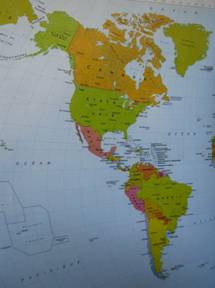 Here in my small planet, it hasn’t exactly been the wind which has taken everything–or almost everything–away. It seems to be the work of a crazed tornado. And what remains is in such a poor state that it is nearly unsalvageable.
Here in my small planet, it hasn’t exactly been the wind which has taken everything–or almost everything–away. It seems to be the work of a crazed tornado. And what remains is in such a poor state that it is nearly unsalvageable.


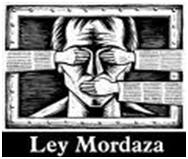
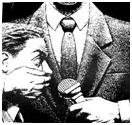 The Cuban Penal Code (CP) characterizes and punishes behavior that goes against the security of the state, the economy, public policy, etc. But in a different area of the law there is another criminal provision, which carries the same weight and promotes the same goals: Law No. 88, “Protection of National Independence and the Economy,” popularly known as “the Gag Law.”
The Cuban Penal Code (CP) characterizes and punishes behavior that goes against the security of the state, the economy, public policy, etc. But in a different area of the law there is another criminal provision, which carries the same weight and promotes the same goals: Law No. 88, “Protection of National Independence and the Economy,” popularly known as “the Gag Law.”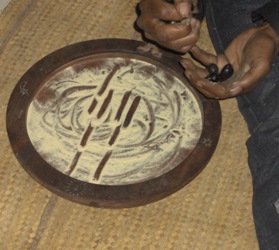 Movement is a universal property: nature changes and society changes. The difference is that changes in nature respond to objective laws which operate with or without human involvement, while history is made by men, allowing them to hasten or delay change, but not to stop it. The need for social change manifests itself as a permanent dissatisfaction with what has been achieved, which makes society a perfectible entity.
Movement is a universal property: nature changes and society changes. The difference is that changes in nature respond to objective laws which operate with or without human involvement, while history is made by men, allowing them to hasten or delay change, but not to stop it. The need for social change manifests itself as a permanent dissatisfaction with what has been achieved, which makes society a perfectible entity. He received me on Monday in a quiet apartment in Mantilla from where he has written almost all his work. On a polished table he put cold water and strong coffee for both of us. He lit a cigarette whose smoke, luckily, chose as its victim the bust of Cervantes resting on a nearby sideboard. And began to answer my questions.
He received me on Monday in a quiet apartment in Mantilla from where he has written almost all his work. On a polished table he put cold water and strong coffee for both of us. He lit a cigarette whose smoke, luckily, chose as its victim the bust of Cervantes resting on a nearby sideboard. And began to answer my questions.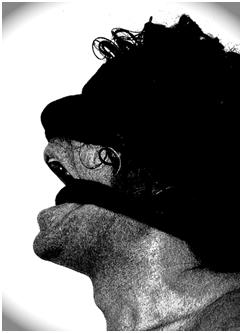 Freedom of expression is internationally recognized in the Declaration of Human Rights (Article 19). These prerogatives include being safe from oppression due to expressing an opinion, conducting research and receiving and spreading information, regardless of borders, by any means.
Freedom of expression is internationally recognized in the Declaration of Human Rights (Article 19). These prerogatives include being safe from oppression due to expressing an opinion, conducting research and receiving and spreading information, regardless of borders, by any means.
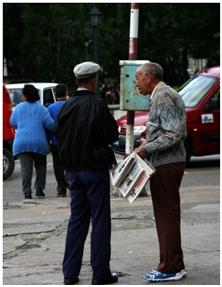 In principle, States enjoy sovereign power, which they are able to express through the actions of their government bodies and the enactment of laws. The latter are the suitable instrument for exercising their right to prescribe crimes and penalties (the right to punish). But it is disturbing how the Cuban government uses the coercive force of criminal law for political purposes.
In principle, States enjoy sovereign power, which they are able to express through the actions of their government bodies and the enactment of laws. The latter are the suitable instrument for exercising their right to prescribe crimes and penalties (the right to punish). But it is disturbing how the Cuban government uses the coercive force of criminal law for political purposes.